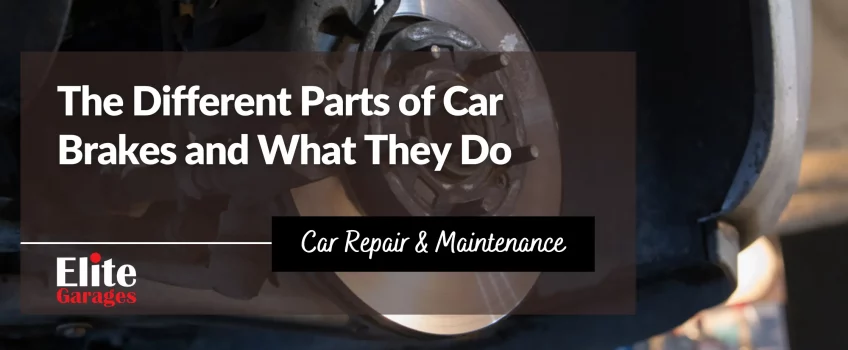
A Comprehensive Guide To Car Brakes
Your car brakes are one of the most important safety features since they are responsible for slowing or stopping your car when you press the brake pedal. There are a few things you can do to keep your car brakes in good working order, and by following this guide, you can help prevent problems before they happen.
How Do Car Brakes Work?
When you press down on the brake pedal, your car’s braking system is activated but how exactly does it work?
The brake pedal is connected to the master cylinder, which contains brake fluid. When you press down on the pedal, the fluid is forced through a series of tubes and hoses to the callipers at each wheel. The callipers then squeeze the brake pads onto the discs at each wheel. It’s this friction that creates the required force to slow or stop your car.
The Different Parts of Car Brakes and What They Do
Your car brakes are essential for overall vehicle safety which is why all motorists must understand how they work to keep them in good condition. The braking system uses a series of components to slow or stop your car, including brake pads, brake callipers, discs and brake fluid lines. Let’s take a closer look at each one.
Brake pads
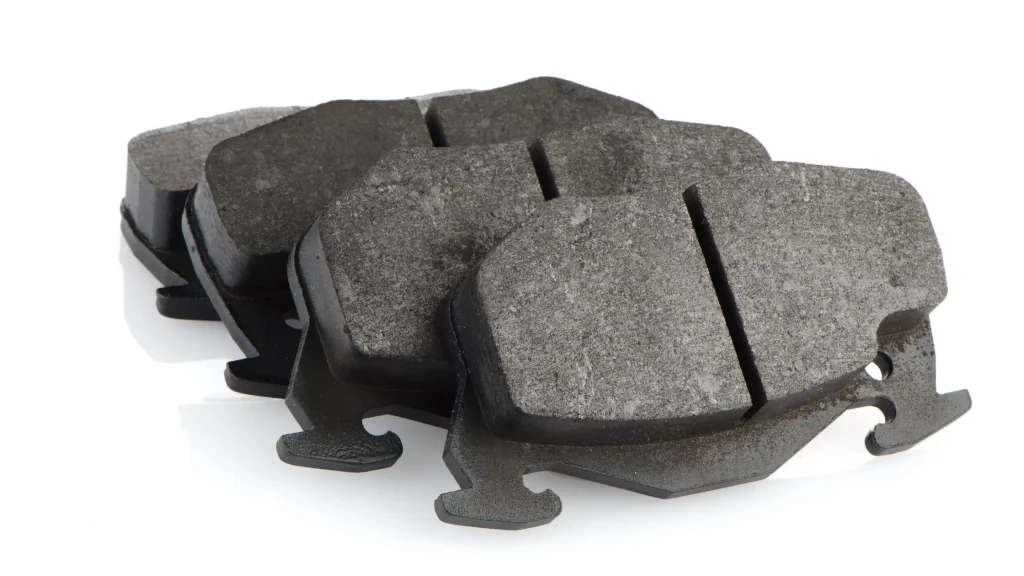
The brake pads are the part of the brake system that actually makes contact with the rotors. When the pads press against the rotors, they create friction, which slows the rotation of the wheels and eventually brings the car to a stop.
Brake discs and Callipers
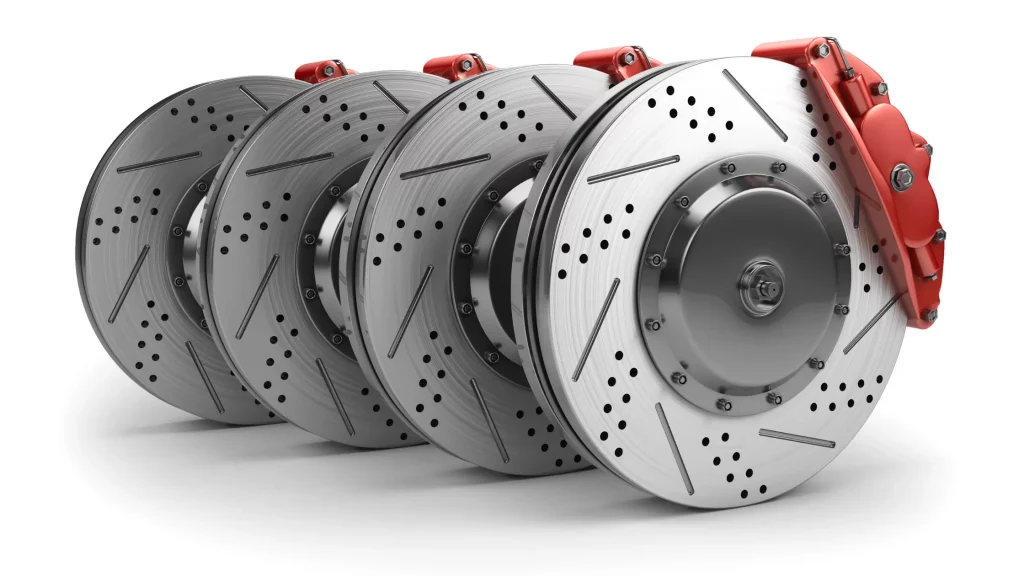
The brake discs, also called rotors, are what the pads press against to create friction. The discs are located behind the wheels and they spin along with the wheels as the car moves. The brake callipers are what hold the brake pads in place against the rotors. They are located on either side of the rotor, and they squeeze the pads together when you press on the brake pedal.
Brake fluid lines
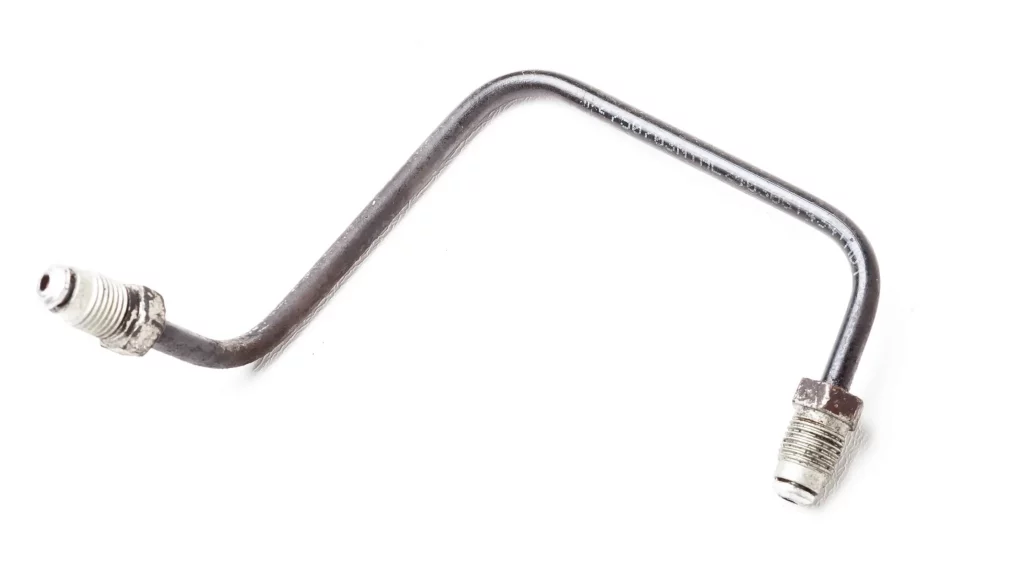
The fluid lines are what connect the various components of the brakes together. The fluid is under pressure, and it travels from the master cylinder (located under the hood) to the callipers. When you press on the brake pedal, it pushes a plunger in the master cylinder, which forces fluid through the lines and into the callipers. This action causes the callipers to squeeze the pads against the rotors, and your car slows down.
Different Types Of Brake Pads
The type of brake pads on your vehicle can affect its longevity. Here is an overview of the most common types of car brake pads:
- Organic brake pads are cheaper but won’t last very long
- Low metallic brake pads are noisy with a slightly longer lifespan
- Semi-metallic brake pads are common as they have a long lifespan and are more affordable
- Ceramic brake pads last longer than any other brake pads and are more resistant to wear but they are also the most expensive
What Is The Lifespan Of Brake Pads?
Brake pads usually need to be replaced after approximately 50,000 miles but some as early as 25,000 miles. The amount of wear and the car brake replacement intervals will depend on several factors. This includes driving habits, the environment, materials used and the hardness level of the brake pads. In some cases, brake pads can last for up to 70,000 miles but it depends largely on how you drive and the type of brake pad you had fitted.
If you take good care of your car brakes, they should last for many years without any problems. However, if you do experience any issues, it is important to have them checked as soon as possible to avoid any safety hazards. If you are concerned in any way, simply book a free brake inspection at your nearest Elite Garages. Our brake experts will you know if there you need new brake pads or discs or if there’s a leak in the brake fluid line.
Common Problems With Car Brakes and How to Fix Them
Brake Fade
One of the most common issues is brake fade. This happens when the brakes lose their stopping power due to excessive heat. One way to prevent this is to make sure your brake pads are properly adjusted and that you use the correct grade or type of brake fluid.
Brake Squeal
The second problem is brake squeal which is caused by metal-on-metal contact between the brake pad and the disc. You can usually resolve this by installing new brake pads and/or resurfacing the discs (brake skimming).
Seized Callipers
When brake callipers seize, it may seem like the car is driving normally but the pads are only pushing against the disc from the piston side. This will result in reduced braking ability on one wheel with excessive wear to the pad on the piston side. With the help of brake experts at Elite Garages, it can be fixed by replacing the calliper piston seals or rebuilding the calliper.
Worn Brake Pads
Another common issue is worn-out brake pads. When the pads get too thin, they can’t create enough friction to slow the discs down properly. This can cause your car to pull to one side when you brake, or it can make the braking process less effective.
Leak in the Brake Fluid Lines
This can be caused by a number of things, including a loose fitting or a hole in the line. If you notice your brake pedal feels spongy when you press it, this is an indication of a leak.
If you’re experiencing any of these common brake problems, it’s important to take action right away in order to keep yourself and your loved ones safe on the road. For more information on common brake problems and how to fix them, please contact the team at Elite Garages.
How to Tell if Your Car Brakes Need to Be Replaced
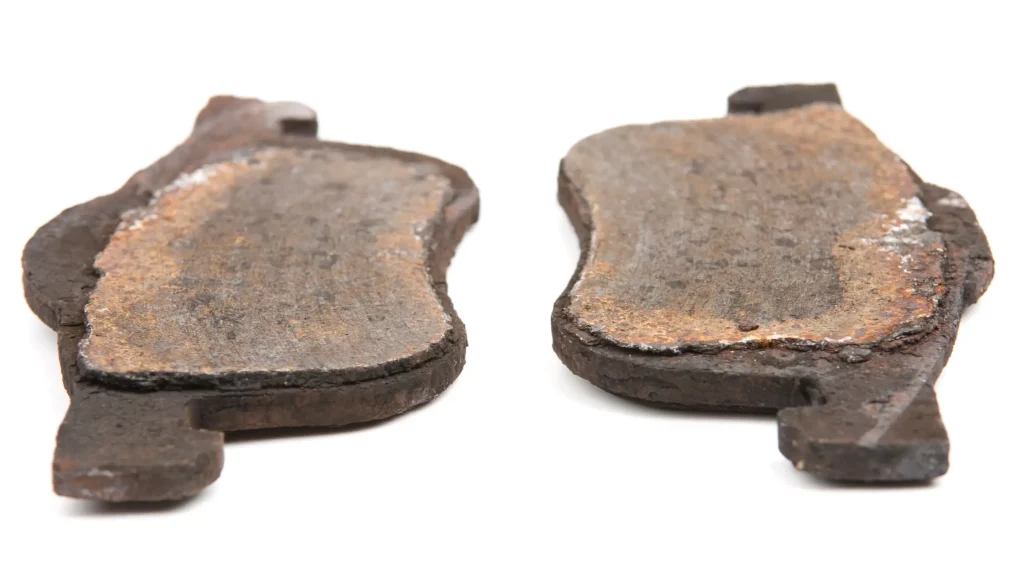
Front brake pads often wear faster than the rear as they handle more of the braking load. Lucky for us, there are a few tell-tale signs that you may need a brake replacement service and we’ve listed them below:
- Grinding noise when braking
- Car pulls to one side
- Pulsating or juddering
- Vibrating steering wheel
- Thin brake pads
If you’re not sure whether you need a brake replacement service, it’s best to take your car to a mechanic and have them look at it. While brake replacement is relatively straightforward, it’s best to leave it to the professionals if you’re not sure what you’re doing.
How To Check Brake Pads
You can look through the spaces between your wheel spokes to see how thick your brake pads are. The majority of brake pads should not be thinner than 6.4mm (¼ inch). Some brake pads have a slot in the middle that shows wear when it grinds against the disc, giving a squealing sound.
Common Car Repair Issues
One of the most common car repair issues is the braking system. If your brake pads are worn, they will need to be replaced. In addition, if your brake fluid is low, you may need to top it up or replace it. If your brakes are making a noise, it could be a sign that something is wrong with the discs or callipers, and you may need to have these parts replaced.
The best way to prevent car repair issues from developing into more serious and expensive problems is to have your car serviced regularly by a qualified mechanic. They will be able to check all the components of your car brakes and identify any potential issues. You should also regularly check your braking system for wear and tear and make sure that the brake fluid levels are topped up.
What Can You Do To Increase The Lifespan Of Car Brakes?
There are a few things you can do to keep your brakes in good working order. First, make sure you’re always using the right type of brake fluid for your car. Second, have your brakes checked regularly by a qualified mechanic. Third, avoid riding on the brake pedal, as this can cause them to overheat and wear down prematurely.
Related: How Does Brake Fluid Work In My Car
Tips for Preventing Issues With Your Car Brakes
If you’re like most drivers, you probably don’t think about your car’s brakes until there’s a problem. And by then, it may be too late. That’s why it’s important to be proactive about brake maintenance. Here are a few tips to help keep your car’s brakes in good shape:
- Make sure your brake fluid is topped off. Low brake fluid can cause the brakes to fail
- Inspect your brakes regularly. A qualified technician can check for problems and fix them before they become more serious
- Use the correct type of brake fluid for your car. Some fluids are better suited for certain types of brakes than others
- Keep your tires inflated to the correct pressure. Underinflated tires can reduce braking power.
- Avoid slamming on the brakes. This can cause the brakes to overheat and wear out prematurely.
Conclusion
Car brakes are a vital safety feature, and it’s important to make sure they are in good working order. By following the tips above and having your car brakes checked regularly, you can help prevent problems before they occur.
If you notice any strange noises or smells coming from your brakes, it’s important to have them checked out as soon as possible. These could be signs of serious problems that need to be addressed immediately. Do the right thing and maximise vehicle safety by replacing your car brakes when the first signs of wear appear.
When you are ready, you can quickly and easily book a brake replacement service online or visit Elite Garages for a free visual brake check if you have any concerns about the condition of your car brakes. We have various car repair centres across the south and southeast of England in convenient locations.
About Us
Opening Times
Saturday : 8:30–4:00
Sunday : closed
More Information
Contact UsCustomer Information Pack
Check MOT Due Date
Free MOT reminder
Careers


